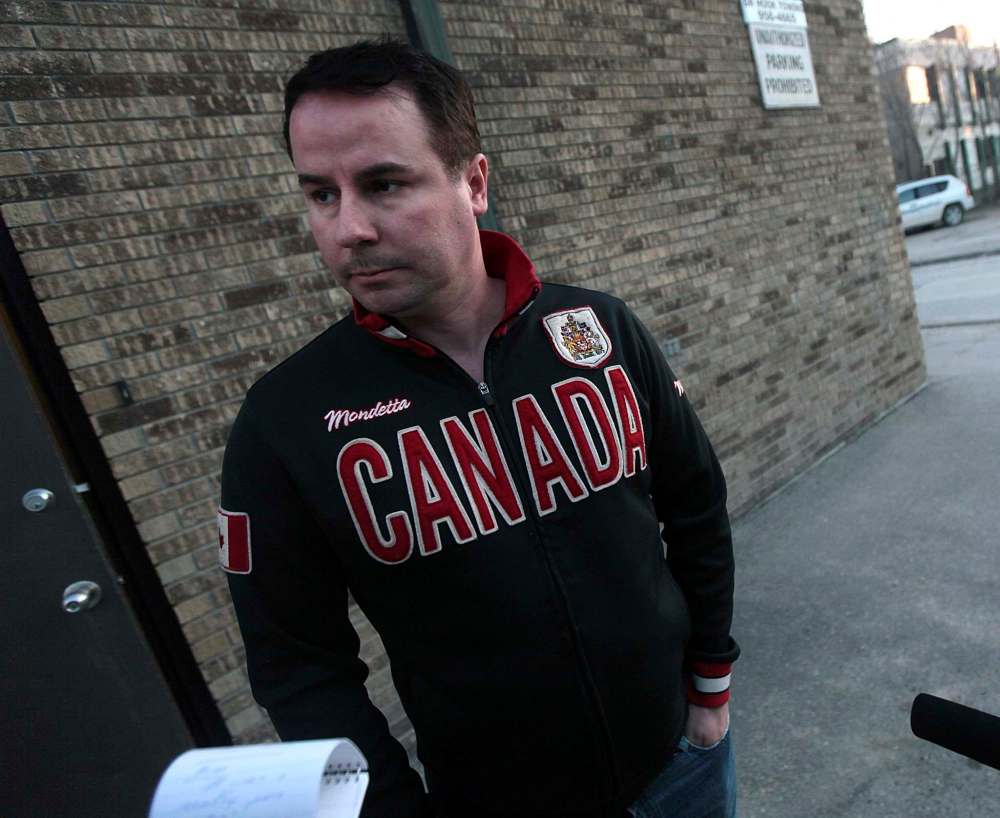Manitoba’s immigration program reviews claims of abuse
Advertisement
Read this article for free:
or
Already have an account? Log in here »
To continue reading, please subscribe:
Monthly Digital Subscription
$0 for the first 4 weeks*
- Enjoy unlimited reading on winnipegfreepress.com
- Read the E-Edition, our digital replica newspaper
- Access News Break, our award-winning app
- Play interactive puzzles
*No charge for 4 weeks then price increases to the regular rate of $19.00 plus GST every four weeks. Offer available to new and qualified returning subscribers only. Cancel any time.
Monthly Digital Subscription
$4.75/week*
- Enjoy unlimited reading on winnipegfreepress.com
- Read the E-Edition, our digital replica newspaper
- Access News Break, our award-winning app
- Play interactive puzzles
*Billed as $19 plus GST every four weeks. Cancel any time.
To continue reading, please subscribe:
Add Free Press access to your Brandon Sun subscription for only an additional
$1 for the first 4 weeks*
*Your next subscription payment will increase by $1.00 and you will be charged $16.99 plus GST for four weeks. After four weeks, your payment will increase to $23.99 plus GST every four weeks.
Read unlimited articles for free today:
or
Already have an account? Log in here »
Hey there, time traveller!
This article was published 12/07/2019 (2342 days ago), so information in it may no longer be current.
The provincial government is looking into possible abuse of its successful immigration-nominee program, after the Free Press revealed allegations of wrongdoing by city lawyer Paul Hesse.
The Manitoba provincial nominee program “is undertaking thorough investigations as appropriate, in response to those allegations, including a review of all files relevant to the issues in question,” a provincial official wrote this week.
Provincial officials are working with the Law Society of Manitoba as it probes allegations that Hesse, when a lawyer with the Winnipeg firm Pitblado, solicited business investments from as many as 20 of his immigration clients.

Hesse has not responded to multiple requests for comment. Pitblado dismissed Hesse last month.
Hesse has not been charged.
Former clients allege he convinced them to invest in dodgy business deals in order to help them get status in Canada, whether they were abroad or in the country. Some say they were promised a type of labour market impact assessment that is normally used for the nominee program.
Manitoba uses the provincial nominee program more than any other province, and for years has pushed Ottawa to boost its annual quota. The nominee program aims to attract job-ready immigrants whose skills match the needs of Manitoba’s job market. It also attracts active investors in Manitoba’s economy.
Richard Kurland, a longtime Vancouver immigration lawyer, said it’s uncommon for people in his field to be accused of soliciting business investments.
He also said law societies grapple with regulating the immigration bar as their business often occurs on different continents, making it unclear which laws apply to a frontline recruiter abroad, compared with a lawyer in Winnipeg or a lawyer visiting clients in other countries.
“The normal ‘one-size-fits-all’ ethical rules often don’t have traction when it comes to immigration-related transactions. It’s a headache for everyone,” he wrote Friday.
Federal Immigration Minister Ahmed Hussen’s office said it would be “inappropriate” to confirm whether officials are investigating Hesse. His office said law societies are expected to look into misconduct by attorneys.
It remains unclear what could happen to Hesse’s clients, with possible measures including deportation or criminal charges. Generally, judges weigh cases heavily on how much immigration clients could reasonably be expected to understand when they made applications or investments.
Kurland said officials would likely consider whether clients sought, or were advised to seek, independent advice.
“This tends to be fact-specific, and it is tough to apply a general rule to specific cases,” Kurland wrote.
Brandon-Souris MP Larry Maguire sits on the immigration committee that helped shape rules to crack down on dodgy immigration consultants. He said he’s not sure Ottawa could be doing more than what exists in the law to weed out unethical behaviour by immigration lawyers.
“The credibility of the system needs to be upheld, for sure,” Maguire said.
“The minister needs to check into these things, to see if there has been any illegal occurrences that have happened.”
dylan.robertson@freepress.mb.ca





